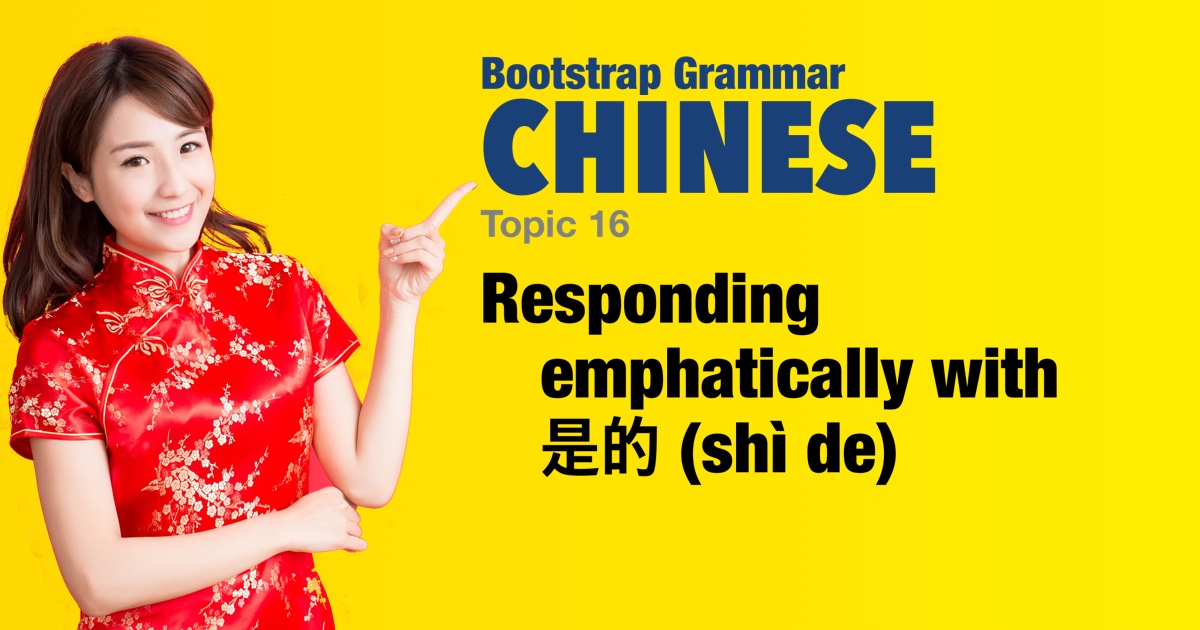Chinese grammar - Responding emphatically with 是的 (shì de) |
|||
|
|||
A very common way to respond to a question positively in Chinese is to use 是的 (shì de). The addition of the 的 adds emphasis and formality. It is also more emphatic than just 是 alone - like saying 'Yes, that's right'. Also it can be used to respond to a question with any verb - not just the verb 是. But if it is used to respond to a different verb, that verb should be repeated in the answer after 是的. |
| Examples: | |
|
你是老师吗?是的。
nǐ shì lǎoshī ma?#shìde. Are you a teacher? Yes (that's right). |
|
|
他是中国人吗?是的。
tā shì zhōngguó rén ma?#shìde. Is he Chinese? Yes (that's right). |
|
|
是的,我是中国人。
shìde,#wǒ shì zhōngguó rén. Yes (that's right), I am Chinese. |
|
|
那是公园吗?是的。
nà shì gōngyuán ma?#shìde. Is that a park? Yes (that's right).
|
|
|
你有两张票吗?是的,我有。
nǐ yǒu liǎng zhāng piào ma?#shìde,#wǒ yǒu. Do you have two tickets? Yes (that's right), I have.
|
|
|
他吃米饭吗?是的,他吃。
tā chī mǐfàn ma?#shìde,#tā chī. Does he eat rice? Yes (that's right), he eats. |
|
|
那些是柠檬吗?是的。
nà xiē shì níngméng ma?#shìde. Are those lemons? Yes (that's right). |
|
|
你吃肉吗?是的,我吃。
nǐ chī ròu ma?#shìde,#wǒ chī. Do you eat meat? Yes (sure), I do eat (it). |
|
|
你喜欢啤酒吗?是的,我喜欢。
nǐ xǐhuān píjiǔ ma?#shìde,#wǒ xǐhuān. Do you like beer? (Yes,) I do like (it). |
|
 |
|



 The question used
The question used 